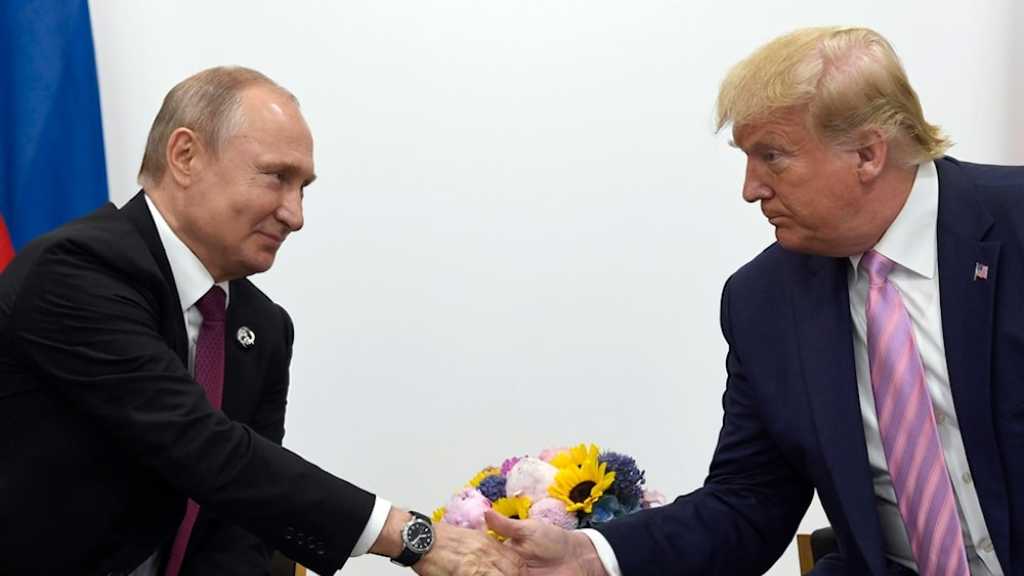US Sells Weapons to Supply Wars

Source: Alalam.ir, 14-09-2008
WASHINGTON-- The Bush administration is pushing through a wide range of foreign weapons deals in a bid to supply its mounting expenditure in the wars in Iraq and Afghanistan, The New York Times reported.
While the focus has been on the Middle East, sales extend to northern Africa, Asia, Latin America, Europe and Canada, the Times said its Sunday edition.
The deals range from tanks, helicopters and fighter jets to missiles, remotely piloted aircraft and warships, the Times said.
The weapons and other military equipment foreign sales have totaled more than $32 billion this year, compared with $12 billion in 2005.
"This is not about being gunrunners," the Times quoted Bruce Lemkin, the Air Force deputy undersecretary who has coordinated many of the largest sales, as saying. "This is about building a more secure world."
About 60 countries get annual military aid from the US, $4.5 billion a year, to help them buy US weapons.
‘Israel' and Egypt receive more than 80 percent of that aid.
The US has also recently given Iraq and Afghanistan large amounts of weapons and other equipment and has begun to train fledgling military units at no charge.
But most arms exports are paid for by the purchasers without US financing.
The growing tally of international weapon deals, which started to surge in 2006, is now provoking questions among some advocates of arms control and some members of Congress.
"Sure, this is a quick and easy way to cement alliances," said William D. Hartung, an arms control specialist at the New America Foundation, a public policy institute. "But this is getting out of hand."
Congress is notified before major arms sales deals are completed between foreign governments and the Pentagon.
While lawmakers have the power to object formally and block any individual sale, they rarely use it.
The US has long been the top arms supplier to the world. In the past several years, however, the list of nations that rely on the US as a primary source of major weapons systems has greatly expanded.
Among the recent additions are Argentina, Azerbaijan, Brazil, Georgia, India, Iraq, Morocco and Pakistan, according to sales data through the end of last month provided by the US Department of Defense.
Cumulatively, these countries signed $870 million worth of arms deals with the US from 2001 to 2004. For the past four fiscal years, that total has been $13.8 billion.
Israel', long a major buyer of US military equipment, is also increasing its orders, including planned purchases of perhaps as many as four US-made coastal warships, worth $1.9 billion.
The flood of sophisticated American military equipment pouring into the Middle East has evoked concern among some members of Congress, who fear that the Bush administration may be compromising the military edge Israel has long maintained in the region.
WASHINGTON-- The Bush administration is pushing through a wide range of foreign weapons deals in a bid to supply its mounting expenditure in the wars in Iraq and Afghanistan, The New York Times reported.
While the focus has been on the Middle East, sales extend to northern Africa, Asia, Latin America, Europe and Canada, the Times said its Sunday edition.
The deals range from tanks, helicopters and fighter jets to missiles, remotely piloted aircraft and warships, the Times said.
The weapons and other military equipment foreign sales have totaled more than $32 billion this year, compared with $12 billion in 2005.
"This is not about being gunrunners," the Times quoted Bruce Lemkin, the Air Force deputy undersecretary who has coordinated many of the largest sales, as saying. "This is about building a more secure world."
About 60 countries get annual military aid from the US, $4.5 billion a year, to help them buy US weapons.
‘Israel' and Egypt receive more than 80 percent of that aid.
The US has also recently given Iraq and Afghanistan large amounts of weapons and other equipment and has begun to train fledgling military units at no charge.
But most arms exports are paid for by the purchasers without US financing.
The growing tally of international weapon deals, which started to surge in 2006, is now provoking questions among some advocates of arms control and some members of Congress.
"Sure, this is a quick and easy way to cement alliances," said William D. Hartung, an arms control specialist at the New America Foundation, a public policy institute. "But this is getting out of hand."
Congress is notified before major arms sales deals are completed between foreign governments and the Pentagon.
While lawmakers have the power to object formally and block any individual sale, they rarely use it.
The US has long been the top arms supplier to the world. In the past several years, however, the list of nations that rely on the US as a primary source of major weapons systems has greatly expanded.
Among the recent additions are Argentina, Azerbaijan, Brazil, Georgia, India, Iraq, Morocco and Pakistan, according to sales data through the end of last month provided by the US Department of Defense.
Cumulatively, these countries signed $870 million worth of arms deals with the US from 2001 to 2004. For the past four fiscal years, that total has been $13.8 billion.
Israel', long a major buyer of US military equipment, is also increasing its orders, including planned purchases of perhaps as many as four US-made coastal warships, worth $1.9 billion.
The flood of sophisticated American military equipment pouring into the Middle East has evoked concern among some members of Congress, who fear that the Bush administration may be compromising the military edge Israel has long maintained in the region.
Comments
- Related News

Kremlin: No Preparations Yet for Trump-Putin Meeting
3 months ago


